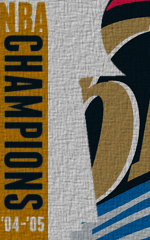Nathan Sliver's 2001 Post Season Predictions
Nathan Sliver's 2001 Post Season Predictions
Nathan Sliver here from SevenFortySeven with 2001 playoff predictions. I (well not me actually but some combination of interns and code) spent some time gathering the team statistics for every playoff team in PBSL history. Then I went about running all sorts of regressions trying to determine the true root causes of post season success. The results were honestly not great but I thought I'd present them in their current state and every year I'll try to improve on them. So here are the results and predictions.
Round 1
The key drivers of first round success are apparently points margin, team free throw percentage, team offensive rebounds, and opponent three point percentage. This could be a bunch of noise but this suggests that second chance points, taking care of business at the line, and perimeter defense are all important during first round play.
I also controlled for managers in this and all following calculations (including only managers that have been around for the majority of the league's history). What does this mean? Well, let's just say that if a team is managed by a guy like Coach Seven of the Blazers, you have a statistically significant worse chance than the average team of advancing from the first round and if you're managed by a guys named Balls your chances of success are better than average in any round.
Because such a wide variety of teams advance from the first round, these results tend to produce less accurate predictions.
Round 2
In round two things change. Points margin is still important and so is free throw percentage (surprisingly) but now team fouls and blocks margin are also significant. This sounds like a load of rubbish but it does tend to make fairly nice predictions. I went back and applied all of my results to all of the past postseasons and the round 2 predictions were shockingly accurate.
Conference Finals
According to my results, the most important indicators of conference champions are team points, team blocks, team points per shot, opponent defensive rebounds, and opponent field goal percentage. Opponent defensive rebounds is the interesting one here, This suggests that you need to clean the boards and make shots.
Finals
If a team can make it to the finals the criteria for success changes once again. There are some frankly weird results here. Team points and turnovers are positively correlated whereas team field goal percentage is negatively correlated. This suggests that the game favors high scoring high pace teams over calculated efficient offenses. The fact that opponent field goal percentage is also positively correlated with finals success reinforces this notion.
2001 Predictions
Below are the round by round probabilities of a team advancing. As you can see, the order changes each round, suggesting that different attributes are valued more or less each round, meaning that well rounded teams are more likely to make a long run. However, that table doesn't take into account matchups. In fact, none of my calculations take match ups into effect. That is why it gave the Mavericks a <1% chance to win the finals each year they won. However, I can just compare probabilities within each match up to predict and complete bracket. This method isn't great, it correctly predicted the champion of only 3 of the past 10 postseasons but it is a lot of fun and I think it will be right this year. Obviously this year's post season is very top heavy but among the interesting predictions are the Grizzlies upsetting the Kings and the Jazz upsetting the T-Wolves. Time will only tell if these predicted probabilities will hold but this is what the numbers foretell.
Round 1
The key drivers of first round success are apparently points margin, team free throw percentage, team offensive rebounds, and opponent three point percentage. This could be a bunch of noise but this suggests that second chance points, taking care of business at the line, and perimeter defense are all important during first round play.
I also controlled for managers in this and all following calculations (including only managers that have been around for the majority of the league's history). What does this mean? Well, let's just say that if a team is managed by a guy like Coach Seven of the Blazers, you have a statistically significant worse chance than the average team of advancing from the first round and if you're managed by a guys named Balls your chances of success are better than average in any round.
Because such a wide variety of teams advance from the first round, these results tend to produce less accurate predictions.
Round 2
In round two things change. Points margin is still important and so is free throw percentage (surprisingly) but now team fouls and blocks margin are also significant. This sounds like a load of rubbish but it does tend to make fairly nice predictions. I went back and applied all of my results to all of the past postseasons and the round 2 predictions were shockingly accurate.
Conference Finals
According to my results, the most important indicators of conference champions are team points, team blocks, team points per shot, opponent defensive rebounds, and opponent field goal percentage. Opponent defensive rebounds is the interesting one here, This suggests that you need to clean the boards and make shots.
Finals
If a team can make it to the finals the criteria for success changes once again. There are some frankly weird results here. Team points and turnovers are positively correlated whereas team field goal percentage is negatively correlated. This suggests that the game favors high scoring high pace teams over calculated efficient offenses. The fact that opponent field goal percentage is also positively correlated with finals success reinforces this notion.
2001 Predictions
Below are the round by round probabilities of a team advancing. As you can see, the order changes each round, suggesting that different attributes are valued more or less each round, meaning that well rounded teams are more likely to make a long run. However, that table doesn't take into account matchups. In fact, none of my calculations take match ups into effect. That is why it gave the Mavericks a <1% chance to win the finals each year they won. However, I can just compare probabilities within each match up to predict and complete bracket. This method isn't great, it correctly predicted the champion of only 3 of the past 10 postseasons but it is a lot of fun and I think it will be right this year. Obviously this year's post season is very top heavy but among the interesting predictions are the Grizzlies upsetting the Kings and the Jazz upsetting the T-Wolves. Time will only tell if these predicted probabilities will hold but this is what the numbers foretell.
- IamQuailman
- Posts: 10934
- Joined: Tue Jan 06, 2015 8:25 am
- PBSL Team: Milwaukee Bucks
- Contact:
Re: Nathan Sliver's 2001 Post Season Predictions
AWADED 5 POINTS! TANKS FOR THE CONTRIBUTION!
awesome stuff dude!
awesome stuff dude!
 |  |  |  |
- TheSyndicate
- Posts: 3815
- Joined: Mon Jan 19, 2015 2:15 pm
- PBSL Team:
Re: Nathan Sliver's 2001 Post Season Predictions
can you do an analysis on lotto numbers for me?
6 Rings. That's it. That's the tweet.
- ballsohard
- Posts: 3816
- Joined: Mon Jan 05, 2015 10:11 pm
- PBSL Team: Philidelphia 76ers
Re: Nathan Sliver's 2001 Post Season Predictions
This is awesome clap clap clap clap clap
Sent from my iPhone using Tapatalk
Sent from my iPhone using Tapatalk



Re: Nathan Sliver's 2001 Post Season Predictions
Dammit I hate that you nailed this
- ballsohard
- Posts: 3816
- Joined: Mon Jan 05, 2015 10:11 pm
- PBSL Team: Philidelphia 76ers
Re: Nathan Sliver's 2001 Post Season Predictions
Lotto numbers would be interesting. I'll definitely consider it.TheSyndicate wrote:can you do an analysis on lotto numbers for me?
Re: Nathan Sliver's 2001 Post Season Predictions
The prediction of the Grizzlies upsetting you was the one I was most nervous about but high risk high reward I suppose.NOLa. wrote:Dammit I hate that you nailed this
- IamQuailman
- Posts: 10934
- Joined: Tue Jan 06, 2015 8:25 am
- PBSL Team: Milwaukee Bucks
- Contact:
Re: Nathan Sliver's 2001 Post Season Predictions
Going back to the first season.... there has always been an upset by either the #6 or #7 seed (conference alternates/changes).
 |  |  |  |
Re: Nathan Sliver's 2001 Post Season Predictions
If I find your computer there is a high risk I will shove it up a stranger's ass and throw him off the bridge.kucoach7 wrote:The prediction of the Grizzlies upsetting you was the one I was most nervous about but high risk high reward I suppose.NOLa. wrote:Dammit I hate that you nailed this
Re: Nathan Sliver's 2001 Post Season Predictions
NOLa. wrote:If I find your computer there is a high risk I will shove it up a stranger's ass and throw him off the bridge.kucoach7 wrote:The prediction of the Grizzlies upsetting you was the one I was most nervous about but high risk high reward I suppose.NOLa. wrote:Dammit I hate that you nailed this
Thank god we've met
Sent via carrier pigeon named Robbie
Re: Nathan Sliver's 2001 Post Season Predictions
I think you will do just fineLoCo89 wrote:NOLa. wrote:If I find your computer there is a high risk I will shove it up a stranger's ass and throw him off the bridge.kucoach7 wrote: The prediction of the Grizzlies upsetting you was the one I was most nervous about but high risk high reward I suppose.
Thank god we've met
Re: Nathan Sliver's 2001 Post Season Predictions
6 for 8 in round 1 wasn't terrible. To be fair the T-Wolves/Jazz series was always a toss up. Here are the updated predictions for the rest of the tournament.
Re: Nathan Sliver's 2001 Post Season Predictions
STOP TRYING TO BACKTRACK!kucoach7 wrote: To be fair the T-Wolves/Jazz series was always a toss up.

Re: Nathan Sliver's 2001 Post Season Predictions
Out of my 17% chance of winning I think about 15% of it is the Bucks just forfeiting due to fear of past memories of running into the Celtics in the playoffs.
- IamQuailman
- Posts: 10934
- Joined: Tue Jan 06, 2015 8:25 am
- PBSL Team: Milwaukee Bucks
- Contact:
Re: Nathan Sliver's 2001 Post Season Predictions
Conroy wrote:Out of my 17% chance of winning I think about 15% of it is the Bucks just forfeiting due to fear of past memories of running into the Celtics in the playoffs.
 |  |  |  |